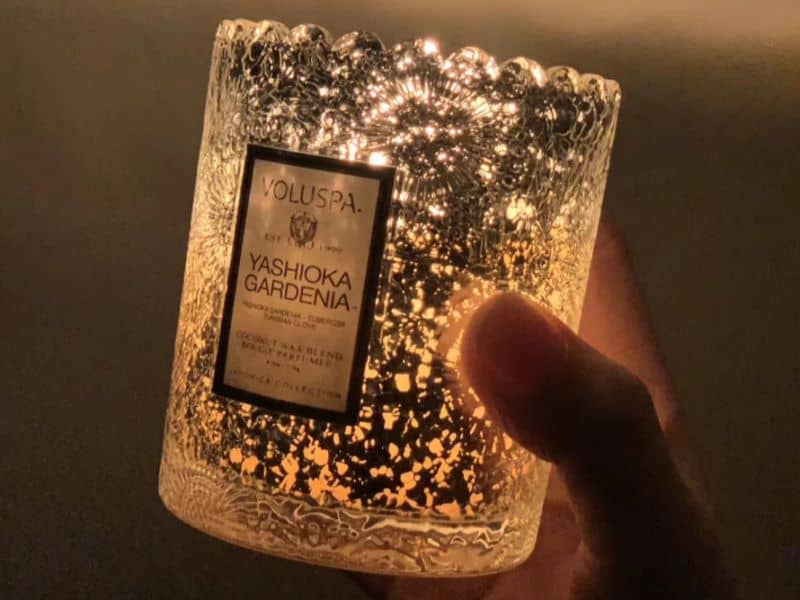The rise of energy costs can cause you to wonder where you can cut corners. How can you continue to light your home without a huge increase in your electric bill?
Burning candles as a light source might seem like a good idea in the short term. But in the long term, it might actually cost more. Of greater importance is the number of candles you would have to use to provide light. Not only can they get expensive, but they can also create a fire hazard.
In this article, I will detail why candles are not necessarily cheaper than lights and why you would want to avoid using them.

How Many Candles Can Light a Room?
Scented candles are a great way to freshen the home. Unscented or scented candles can generate heat and add a warm glow to any room. But how many candles would you have to light in order for that glow to be as effective as a light bulb?
800 lumens is the average amount of light produced by a standard 60 watt light bulb. One candle produces under 20 lumens of light energy. So it would take at least 40 candles to produce that same amount of light as one 60 watt light bulb.
Read more: How Many Lumens is a Candle
Disadvantages of Using Candles as a Light Source?
Just because it’s possible to light a room using candles, does that mean that we should? Lighting and maintaining 40 candles would not only be tiring but also unsafe and frustrating.
Here are some disadvantages of using candles as a light source:
Limited Operating Time
Candles can only be lit for up to four hours at a time. You would either have to rotate candle usage by lighting a certain number at a time, extinguishing them after four hours, and then lighting another set of candles. Or you would have to do without a light source after the four hour period.
Harder to See
It’s more difficult to see what’s in front of you. Candles give off some light but not enough to help you as you’re working, studying or eating.
The amount of light generated by candles is as low as the quality of light generated. For instance, if you’re trying to read a book, you might want a cool light that energizes you and helps you stay awake as you read.
Candlelight is a warm yellow and might cause you to feel sleepy and doze off as you read. Not only does this interfere with productivity. It would be unsafe for you to fall asleep, even for a little while.
Less Economical
It would also be annoying and expensive to have to light forty candles in order to read or carry out other necessary activities.
According to the Bureau of Labor Statistics, the average electricity rate in the United States is 15 cents per kilowatt hour nationwide. By region, the Northeast is the highest at 19 cents per kilowatt. The lowest rate is in the South, averaging about 13 cents per kilowatt.
Energy efficient LED light bulbs, giving off 800 lumens can cost under $20 for a pack of 12 bulbs. These 9 watt bulbs are equivalent to a standard 60 watt bulb. Each bulb can last close to 14 years if used three hours per day. It’s estimated that you would pay a little over $1 USD per year using one light bulb for over 1,000 hours.
Of course using more light bulbs and for extended periods of time will definitely increase the cost. But using the entire pack of bulbs for three hours a day would add less than $15 to an electric bill.
Candles, on the other hand, are more expensive. While there are some outliers, the average cost of a large scented candle is $20 USD. Depending on how it’s made, it might burn about 90 hours. Forty of them would cost at least $800 USD.
You can get a set of 12 unscented medium-sized pillar candles for about $3 USD each, or about $36 USD total. Each candle burns for about 33 hours for a total of 396 hours. But keep in mind that you’d need about 40 of them in order to be able to see well. You total then soars to over $100 for the minimal number of candles needed to be able to function normally.
In either case, you’ll be paying much more for candles than you would light bulbs. Granted, it’s true that when using a light bulb, you must also have a light fixture and those prices vary widely. Even so, you can select a fixture that’s still more economical than the cost of repeatedly purchasing candles.
All of these prices will vary by region, country, and so forth. But even so, you it’s less economical to light your home with candles.
It’s Inconvenient
When we use electricity as a light source, we’re able to turn lights off and on as we need them. Candles are less versatile. They have to stay lit for a minimum amount of time, depending on their width. If not, you can significantly reduce its total burn time.
If you rely on candles for light, you can’t enter a room, light a candle for ten minutes, and then blow out the flame. That candle will begin tunneling in no time. All of the wax will build up on the sides of the container or if it’s a molded pillar candle, it will become a hollow pillar candle.
Short burn intervals might work with tapered candles. But they still may not burn neatly over time if they’re consistently lit and blown out. They can also begin dripping or slouching.
You can’t really “turn on” a candle when you need it. There are too many other factors involved.
It’s Hazardous
Another inconvenience is that you can’t light a candle, leave it lit, and then walk out of the room to tend to other things.
Candles must be monitored at all times. You may leave the room, and then forget that you have the candle lit. This can lead to all kinds of problems.
The wax may melt and begin dripping off of the shelf that it’s sitting on. There might be something hanging over the flame that catches fire. This may sound dramatic, but actually is the cause of 60% of house fires due to candles.
A pet might accidentally knock the candle over, causing a fire. A child might stumble upon the candle and get burned or mistakenly knock it off the table.
If your candle is in a cheap container that overheats, it can shatter and create a mess.
There are so many potentially hazardous situations that can arise from using candles as a light source that it’s not even worth the risk.
According to the National Fire Prevention Association, 2% of reported candle home fires were caused by candles. And 3% of home fire deaths are due to candles. They cause 6% of injuries and 4% of the property damage from house fires.
It May Be Too Hot
You would need to light multiple candles in order for them to provide a sufficient amount of light. And candles generate heat. It may not be as much heat as the heating system in your home, but it’s warmth nonetheless. If you live in a warmer climate or if it’s a warm season where you live, relying on forty or more candles for light might cause the room to get too hot.
Warm nights can get sticky and uncomfortable during the summer months. Lighting lots of candles might only add to the misery.
Increased Use Leads to Higher Potential for Error
People tend to light candles more frequently during the holiday season. Fires caused by candles increase from 2% to 11% during the months of December and January.
This tells me that the more often they’re used, the more potential there is for people to forget that they’re lit, position them near flammable objects, or make other mistakes that can lead to injury, death, or property loss or damage.
Is it Cheaper to Use Candles Instead of Lights?
In the long term, it’s definitely more expensive to use candles as a light source. It’s also far less safe to use candles instead of lights.
I would suggest that you use candles as a light source for special occasions only. But keep in mind that you would still need a few dozen of them burning at once in order to really see anything.
